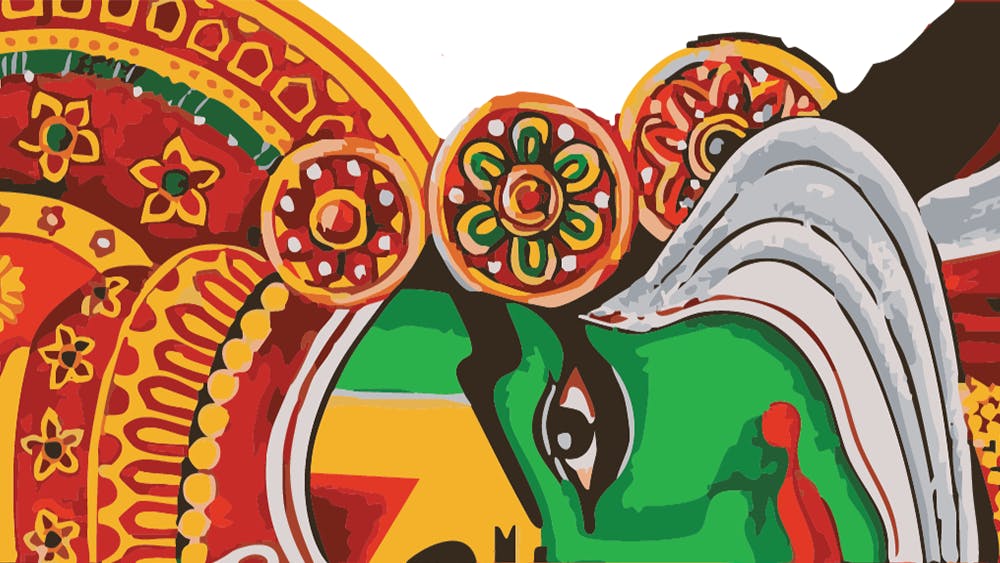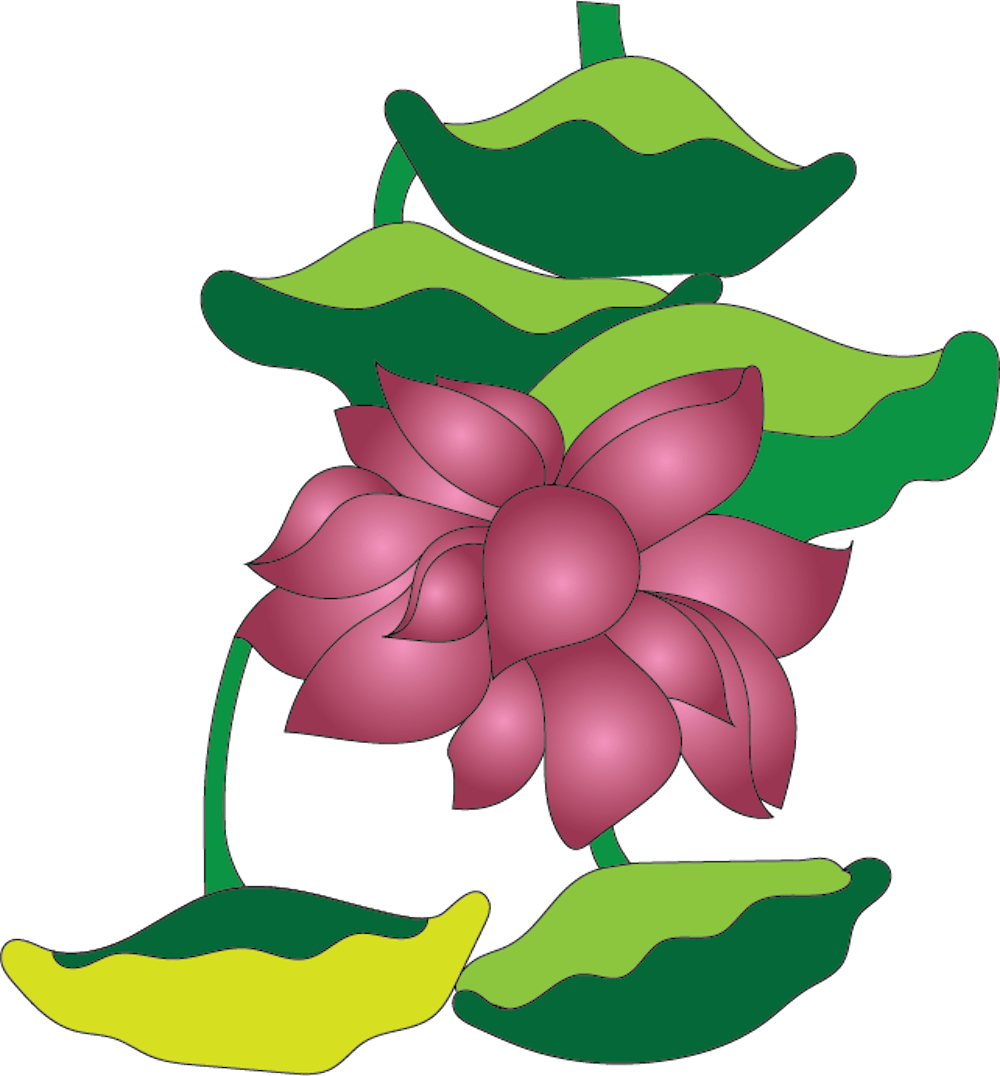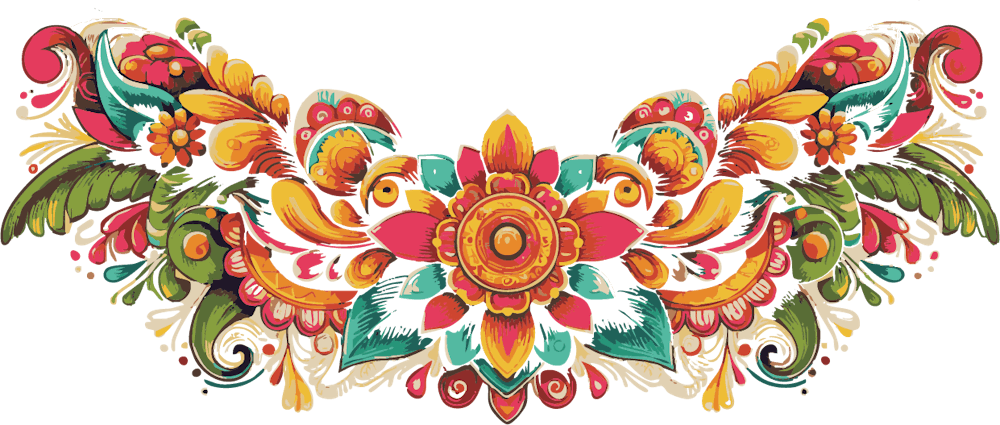Listen to the article:
Palm trees and paddy fields. Dirt roads and fresh backwaters. Steep hills and curvy roads. These are all words I would use to describe where I'm from. Sure, I'm your regular Indian American kid who was raised in Louisville, Kentucky. But what I'm describing is where I'm from — that is Kerala, India.
The suburban, moderate, green-forested city of Louisville is a stark contrast to the small Indian state I was born in. I remember watching Malayalam cartoons while my grandmother would cook unni appam, a sweet, round, doughy banana dessert. I remember watching my older cousin get on the school bus in the morning and waiting for her to get back in the evening. Most of all, I remember my native tongue Malayalam being spoken everywhere. But when my family and I moved to Kentucky, where the Malayali diaspora was only about 20 families, the absence of my native language was a piercing silence.
Grasping at my roots
Up until we moved when I was 3 years old, I had only been exposed to my mother tongue, and the only words I knew were rapid Malayalam. New Malayali family friends we made in our Louisville home were shocked when they met me. "Wow, this kutty (child) knows a lot of Malayalam." I was considered the golden child of our family friend group because I spoke the language.
But even if I spoke well for my age, it didn't really matter. I quickly had to learn a new language before starting school in the United States. Suddenly, my brain had to switch to English, but I still tried my hardest to retain the sounds and patterns of my first language.
Indians pride themselves on being from a different part of the world: one with a unique language, culture and tradition every time you cross a state border. For a long time, my parents held on to our roots. They broke the idea of assimilation and spoke to me in strict Malayalam. I would hear scolds from my amma (mom), stories from my achcha (dad) and even advice from my ammamma (grandmother) in Malayalam.
When my baby brother was born in the States in 2009, we all spoke Malayalam to him hoping he would also become fluent in it when he started speaking. English words were rarely used.
Growing up, I wouldn't hear the name Gokul. I mean, everyone called me Gokul at school, but I grew up almost resenting that name because it was the one that was official. It was for outside the home, not inside. Inside, I was called Kannan. Although a fairly popular nickname among South Indian boys, Kannan held a special place in my heart. It was the name my family back in India called me, as did my mom, dad and family friends we met in Kentucky. It was my familiar name — the one that truly encapsulated all the parts of who I was.
I keep this nickname with me today. I often get mad when my dad calls me Gokul, or when people from India refer to me as that.
It was a revelation to me when I figured out that not every immigrant family stuck to their roots. While I was instinctively on Malayali autopilot, some of my Indian friends stuck to English. The color of their skin ran brown, but the tips of their tongues ran white. At least they could still understand their native language — right? But even that didn't make sense to me. How could someone understand a language but not speak it?
Growing and changing
They say you can't stay in an environment without adapting — the natural cycle of evolution. So, just like my Indian American brothers and sisters, I began to let go of my first language. I spoke more English at home. I didn't talk back in Malayalam. I let go of 'Kannan' and became 'Gokul.'
Throughout middle school and into high school, there were plenty of times I'd pick up a phone call from my parents to only respond in English. Or if I had to speak Malayalam, I'd do it discreetly so my friends wouldn't ask questions afterward. It was suffocating, and I knew I was hiding my identity. My face burned with shame, but not as bad as the shame of being different, being singled out. I was American now — a product of my environment.
Things changed for me when I was in high school. Something clicked when my friend and their family drove me home from school, and all they spoke was Hindi. They didn't hide their identity of another language, another background, another culture in front of others.
In that moment, 'Kannan' came back. I was furious that I had decided to let my native language go for the sake of similarizing. I was furious that I had made my own language an insignificant part of my life. But mostly I was furious because I realized I had lost fluency in Malayalam, a skill I prided myself on as a child.
As I got out of my friend's car, it wasn't Gokul who exited; it was Kannan. I slowly got back into appreciating my native roots: my Malayali thoughts, my Malayali customs, my Malayali self. It took patience.
Even now, I sometimes trip up on hard words or slur my sentences, but I try my best, and people can understand me.
It takes a lot more effort for me to understand my language now. Unlike before, my brain is on English autopilot, so when I speak Malayalam, I have to translate my thoughts from English to
Malayalam and then speak it. But with this manual translation inside my brain, I learned that there is a lot more to my language than just words and phrases. The vocabulary, the tone and the conjugation of words add to the beauty of what it means to be a Malayali.
I learned to love my language. In fact, I was so passionate about it, I started to learn how to write it. My parents never really taught me because they found no use in me learning how to read and write a language I'd never been exposed to in America. I practiced on Google — searching up letters and writing on my own. I'd ask my mom to check my work, and she'd encourage me to keep going. I eventually learned another language, Tamil, because it has a similar structure to Malayalam.
I not only learned to love my language, but to love languages in general. I picked up some Hindi on Duolingo during the COVID-19 pandemic and was passionate about the Spanish classes I took in high school. Languages became a place of solace for me: a way to escape the mundane reality of the English I constantly spoke.
Malayalam was also the language that tied me to my family in India. Growing up in Louisville, all my Indian friends were from different parts of India — primarily places that spoke Telugu, Hindi and Tamil. There weren't many Malayalis around, let alone ones who spoke Malayalam.
It was the language that kept me tied to my ammamma and muthasan (grandfather). Whenever the phone would ring from India, Malayalam conversations about how we were and what was going on in our lives connected my grandparents and me. Whereas a lot of American families experience grandparents much closer to home, Indian Americans often only have two- to three-minute phone calls. I held my language close to my heart and learned to cherish the ability to speak and practice it.
Blossoming in college
When I came to Phoenix for college, I was surprised to find so many other Malayalis who were my age and who spoke the language. It was nice meeting others from Kerala, but it was weird adjusting to an environment where Malayalam was so normalized. The Malayalis I surround myself with aren't amazed that we have the ability to speak another language from across the world — it's like a chore. I speak Malayalam to them and they respond in English.
But I don't let that discourage me from practicing my ability to speak it. I call my parents once a day, and even though these 30-minute conversations are the only opportunities I get to speak in Malayalam, I cherish them. But once the call ends, my language is silent.
I don't have to be silent though. A part of me has always wondered if language is the one thing stopping me from appreciating who I am. Is it the fact that being able to speak Malayalam is what makes me different from other Indian Americans? Is it the fact that I love this skill? Or is it that speaking my language makes me feel like I am not just an American but also an Indian?
I know that I am different from native Malayalis just based on my dialect and how I speak Malayalam. It isn't the same as those who grew up in Kerala, and my cousins always remind me that I am in fact an American. But at first glance, my American friends see the color of my skin and know I am, and always will be, an Indian. Finding that balance is hard, and going back and forth between contrasting identities makes me question which one I fully am — or even if I am one of them at all.
It's a delicate balance that I've learned to curate through self-expression. I wear a religious necklace my parents bought for me in India not tucked inside my shirt, but on the outside for the world to see. I speak Malayalam to those who know it. I celebrate the harvest festival, Onam, and our new year, Vishu, with immense pride and joy — even wearing the traditional piece of clothing, the mundu, to the celebrations.
I don't do this to prove to others that I am Indian or prove that I am still the same golden child I was at 3 years old. I do it to prove to myself that I am a blend of all those that have come before me in an environment that is different. I am a product of my environment, but a testament to my heritage. I am 'Kannan' and 'Gokul' all at once — experiencing both identities in a fluid and proud way.
I am still far away from the land of palm trees and paddy fields. Dirt roads and fresh backwaters. Steep hills and curvy roads.
My spirit oozes of the language my grandmother whispered to me as she put me to bed, the words my father and mother used to raise me and the vocabulary I use to communicate with my Malayali brothers and sisters.
Ok kanna, umma. My mother kisses me as she tucks me to sleep. I reach for her hand as she leaves the room, hoping I could get one last look. But instead, I'm left to cradle myself to bed with the shifting crib of identities as I whisper to myself, goodnight naale kaanam. (I will see you tomorrow).
Edited by Savannah Dagupion, Leah Mesquita and Audrey Eagerton.
This story is part of The Contrast Issue, which was released on March 26, 2025. See the entire publication here.
Reach the reporter at gachatht@asu.edu.
Like State Press Magazine on Facebook, follow @statepressmag on X and Instagram and read our releases on Issuu.
Gokul is a sophomore studying actuarial science. This is his fourth semester with The State Press.






